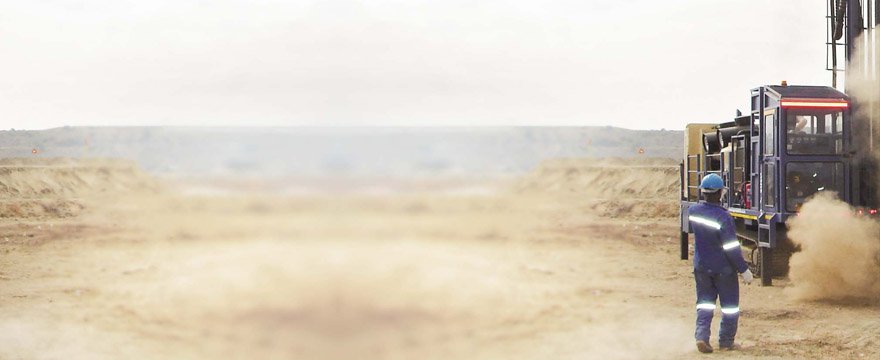Setting new performance standards in Phalaborwa
There are hardly many mining sites in the world where you can see herds of elephants and buffalo roaming about. At the mining complex in Phalaborwa, right next to the mighty Kruger National Park in the northeast corner of South Africa, that sight is commonplace.
The vast Phalaborwa complex is host to several valuable minerals such as phosphate, copper, zirconium, iron, and vermiculite. Phosphate is a key mineral in fertilizers. Before the foundation of the Phalaborwa mine in 1951, the South African agriculture was dependent on imported phosphate rock. Today, South Africa exports phosphate fertilizers around the world.
Venter Drilling, a local family business, has been the drilling contractor at the site for some ten years. In early 2018 they were contacted by Robit SA with a proposal to test Robit’s DTH bits and hammers. Not being completely satisfied with the products of their then supplier, the owner of Venter Drilling, Pieter Venter, agreed to have a testing programme arranged. This was a win-win deal, as it would also provide Robit with genuine feedback on their products.
The first test run involved ten DTH bits and a DTH hammer. “On the outset we wanted to achieve 800 metres per bit and 8,000 metres per hammer”, says Len Botha, who does business development for Robit SA. “In the initial test, the hammer reached 10,767 metres. The bits reached an average of 1,198 metres, with the best one drilling down to 1,699 metres. The previous supplier had averaged only 811 metres per bit”, Len recounts.
This was, of course, extremely promising, but to thoroughly convince Pieter Venter, another set of tests was arranged. This time the hammer went on to do over 12,000 metres. The bit performance was consistent with the first tests.
“Robit tools managed to reduce the overall bit cost by 32 %. This was mainly due to the DTA type of design that we introduced: 18 mm buttons on the peripheral and 16 mm on the inside, with the three centre flushing holes”, says Len.
Phalaborwa holds reserves of some 2.5 billion tonnes of phosphate rock, or five percent of known world reserves. That means the elephants and buffalo will be continuing their friendly co-existence with the miners for quite some time in the future.


